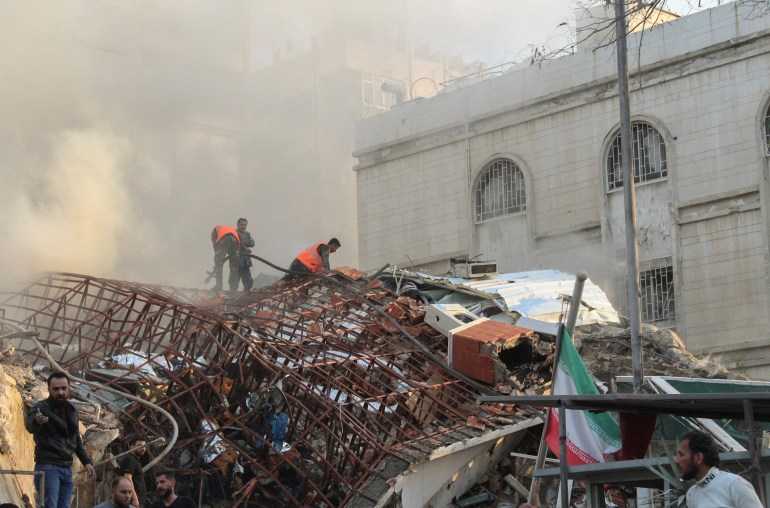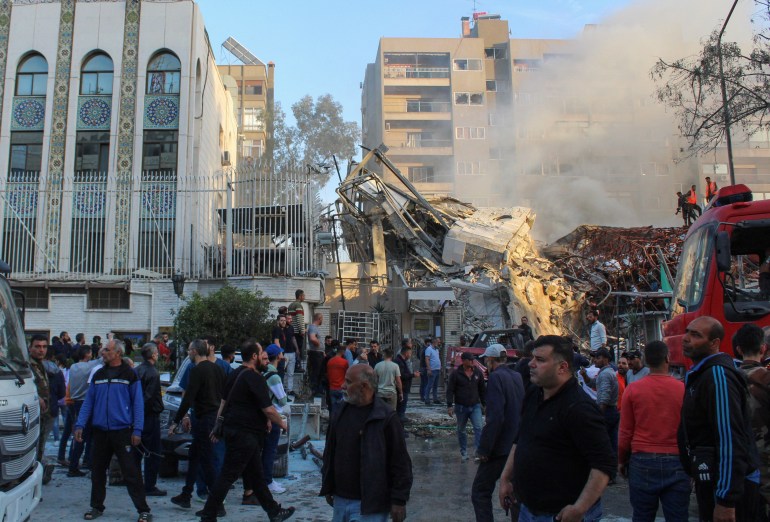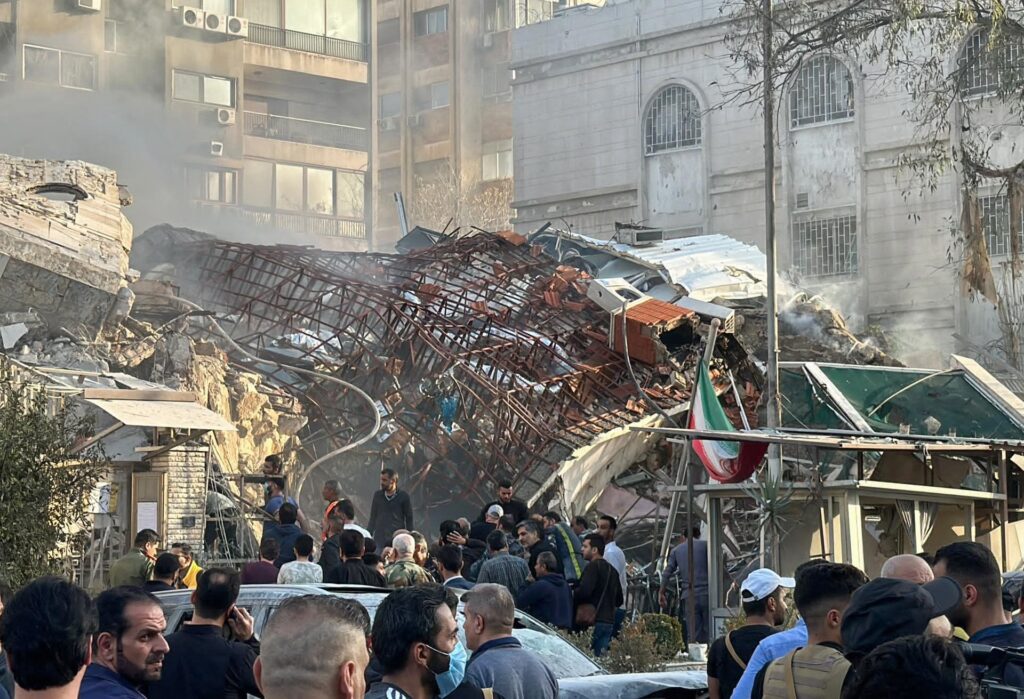According to the Revolutionary Guards, seven people were killed, including commander Mohammad Reza Zahedi and his deputy Mohammad Hadi Hajriahimi.
Iran has vowed to respond after an Israeli airstrike that destroyed the Iranian consulate in Damascus killed seven people, including two Islamic Revolutionary Guards Corps (IRGC) commanders.
The Revolutionary Guards said in a statement on Monday that Brigadier General Mohammad Reza Zahedi, a senior commander of the Revolutionary Guards' elite Quds Force, and deputy general Mohammad Hadi Hajriahimi were killed in the attack.
Reporters at the scene in Damascus' Mezzeh district, where the consulate is located, saw smoke billowing from the rubble and emergency vehicles parked outside.
Iranian Ambassador Hossein Akbari said no one was injured, but at least five people, including three military personnel, were killed in the attack.
He said the Iranian government's response would be “decisive.”

Iranian Foreign Minister Hossein Amir Abdullahian condemned Israel, calling the attack a “violation of all international obligations and treaties.”
In a separate statement, Iranian Foreign Ministry Spokesman Nasser Qanani said Iran “reserves the right to counterattack and will decide on the type of response and punishment of the aggressor.”
Syrian Foreign Minister Faisal Mekdad condemned the “terrorist attack”.
“We strongly condemn this heinous terrorist attack that targeted the Iranian consulate in Damascus and killed many innocent people,” Mekdad said in a statement quoted by Syrian state news agency SANA.
Russia accused Israel of carrying out an “unacceptable” attack.
“We strongly condemn this unacceptable attack on the Iranian consulate in Syria,” the Foreign Ministry said in a statement.
Asked about the attack, an Israeli military spokesperson told reporters: “We do not comment on foreign media reports.”
State Department spokesman Matthew Miller told reporters that the United States “remains concerned about the potential for escalation or increased conflict in the region.”

Since Israel launched a war on the besieged Gaza Strip on October 7 following attacks by the Palestinian organization Hamas, Israel has been fighting in Syria against the Iranian-backed Lebanese militia Hezbollah and Iran's Revolutionary Guards (both Syria has also stepped up airstrikes against Syria, which is also supporting the presidential government. Bashar al-Assad.
The airstrikes in Damascus came days after Israeli airstrikes killed dozens of people in Syria's northern Aleppo province, amid concerns that the war in Gaza could lead to widespread regional escalation.
Ali Baez, director of the International Crisis Group's Iran project, said Israel's alleged attack on the Iranian consulate in Syria was “the same as targeting another country in its own country.”
“Overall, this still seems like a slow regional war. It's not yet a full-scale regional conflict, but Israel seems to be doing its best to escalate the conflict,” Baez told Al Jazeera.
“[This] Putting Israel in a win-win situation, Israel knows that Iran does not want to get drawn into a regional war, and there is probably no cost to escalating attacks against Iranian assets and personnel in Syria. And if Iran were to strike back, and retaliate, that would be a legitimate pretext for escalating the war. ”


